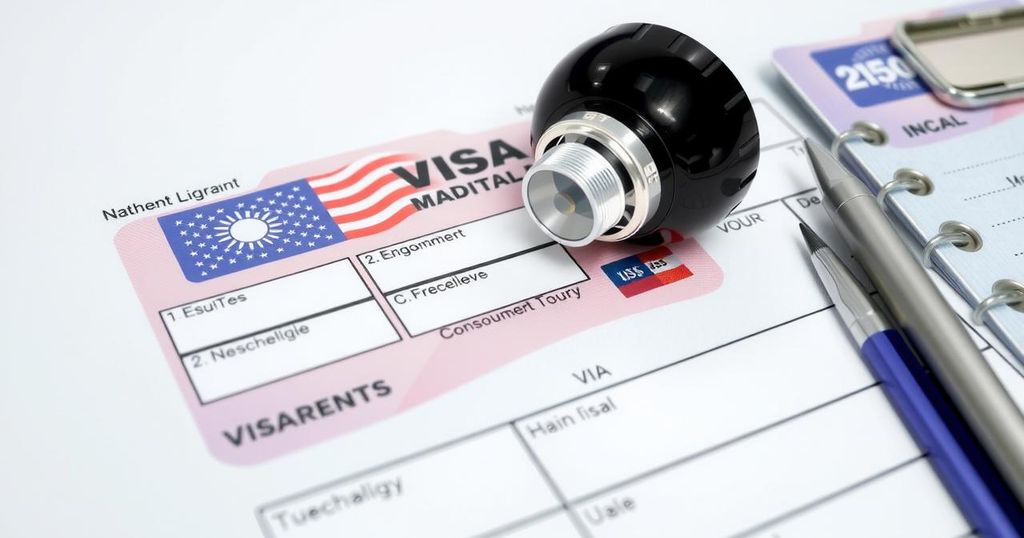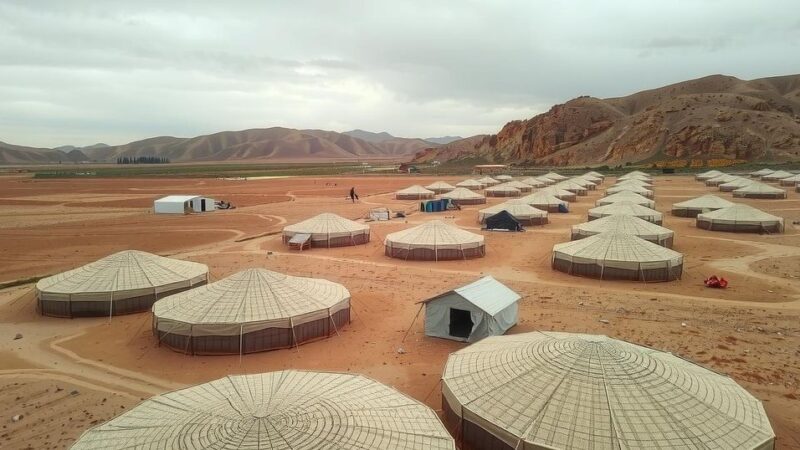In 2025, Indian professionals will benefit from a US-based H-1B visa renewal process, eliminating the need to travel home for approvals. A successful pilot program led by the US Department of State allows eligible applicants to renew visas without leaving the US. The move aims to ease logistical burdens and reduce costs. Respected figures in the tech industry advocate for the program amidst immigration debates.
A significant advancement in H-1B visa renewals is on the horizon for Indian professionals in the United States, allowing them to renew their visas without the necessity of leaving the country. This reduction in travel is particularly beneficial for the extensive number of Indian nationals currently employed in specialized sectors. The US Department of State initiated a pilot program last year that successfully tested this capability with around 20,000 participants. As a result of this positive feedback, the Department is set to implement a formal US-based renewal process in 2025.
Previously, H-1B visa holders faced the cumbersome requirement of traveling to their home country to obtain visa renewals, which involved significant financial costs and lengthy wait times for appointments. The pilot project not only addressed these concerns but also emphasized the need for a more efficient renewal framework. As outlined in a statement from the US Department of State, “This pilot program streamlined the renewal process for thousands of applicants, and the Department of State is working to formally establish a US-based renewal program in 2025.”
Currently, there is a heated debate surrounding the H-1B visa program and its implications for the American job market. Critics argue that H-1B visa holders adversely affect job opportunities for American citizens, whereas supporters, including prominent figures such as Elon Musk and Vivek Ramaswamy, contend that the program is critical for attracting global talent necessary for maintaining technological and economic superiority. Notably, Indian nationals comprise the majority of H-1B visa holders, with 77% of applications in 2022 and over 72% in 2023 attributed to them. Additionally, in 2024, Indians have been recorded as the largest group of international students pursuing higher education in the US, with 331,000 student visas issued.
The H-1B visa program allows US employers to employ foreign workers in specialty occupations, which necessitates a higher degree of skill or knowledge. India stands out as the leading country in terms of H-1B visa holders, primarily in the technology sector. Renewing these visas has posed logistical challenges for many professionals, particularly Indians, due to the requirement to travel back to their home countries for processing, often leading to delays and financial expenditures. The US Department of State initiated a pilot program to streamline this process, which has led to a new policy for 2025 that will allow for visa renewals to occur within the United States.
In conclusion, the upcoming modifications to the H-1B visa renewal process represent a considerable improvement for professionals, particularly those from India. The initiative will alleviate significant challenges associated with travel, time constraints, and financial costs. As debates continue regarding the broader implications of the H-1B program, the recognition of its importance to the U.S. economy and workforce is paramount. The formal introduction of at-home renewals in 2025 is a testament to the evolving landscape of immigration policies concerning skilled labor.
Original Source: www.ndtv.com






